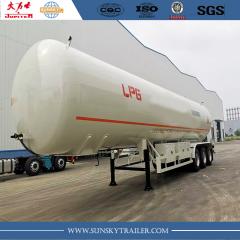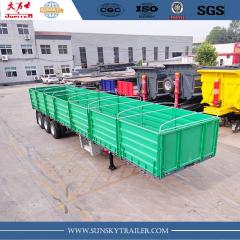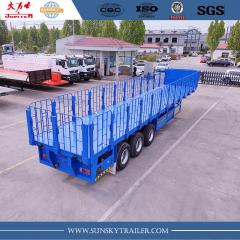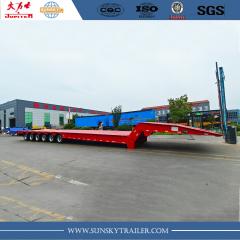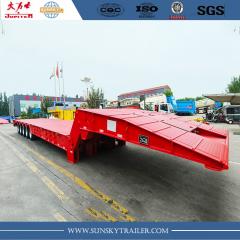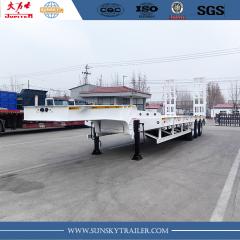- Blog
- What Is a Flatbed Truck? – Complete Guide for Logistics & Transport
- What Is a Dump Trailer? The Complete Guide to Types, Uses, and Choosing the Right Hauler
- Why Are Semi-Trailers Essential in Modern Logistics?
- Why do tires eat?
- What Is A Lowbed Trailer Used For?
- Causes of Semi-Trailer Crashes
Categories
Recent Posts
Ever since the trailers are introduced they have been playing an important role in operations. Now and then, we keep using different forms of trailers for different things; from the delivery of sensitive substances like acid and chemicals to FMCG to machinery, trailers are used for effective and efficient transportation. Among many such different kinds of trailers, comes car carrier trailer. A car carrier trailer, also known as a car-carrying trailer, car haulier, or auto transport trailer, is a trailer or semi-trailer that is intended to transport passenger automobiles effectively through a truck. Open or enclosed vehicle carrier trailers are available nowadays. Most commercial trailers come with built-in ramps for loading and unloading automobiles, as well as power hydraulics for raising and lowering ramps for stand-alone accessibility.
Different types of car carriers
● Single car haulers
Single vehicle carriers, often known as tow trucks, are a wonderful way to move automobiles across small distances on short notice. Because of their modest size, they can easily cross tight roads and access tricky driveways. A single car carrier can transport anything from racing cars to exotics. However, because a single-car transporter does not shelter your automobiles from the weather, it is only utilised for short distances. They also don't offer any kind of privacy. Long-distance shipping with a single car transporter is too costly.
● Open car carriers
The trailers you see on the roadways every day are known as open vehicle carriers. They can carry almost any sort of vehicle. Open car carriers are used to transport everything from new vehicles to vintage, project cars, and scrap cars. They enable the vehicle to be driven onto the trailer and non-running autos to be loaded using a winch. Because the tyre tracks on open vehicle carriers are too small, it's difficult to load narrow automobiles onto the trailer.
● Frame body
The frame body should preferably be open. On the roadways, this is the most popular skeleton tube steel design. The cars are exposed to the environment with this option. It does, however, provide a way for a higher carrying capacity. The double-decker layout is common on these commercial car-hauling trailers. The decks are then partitioned into a number of storage areas and loading ramps. Hydraulics allow these ramps to be independently altered, raised, and inclined.
● Enclosed trailers An enclosed trailer is ideal for transporting high-value vehicles in a secure and discrete manner. During shipping, enclosed trailers keep automobiles safe from the elements and inquisitive eyes. They're usually lower to the ground than open car carriers, making it easier to load low-clearance vehicles like race cars. There's also the roll-back carrier option if it's not low enough for your car. It's a fully enclosed trailer that detaches from the chassis and lands on the ground.
● Packed style
Tarpaulin or steel is the most widely used material for automobile carrier trailers. It's a steel-framed enclosure that's rigidly mounted. This helps to keep autos clean and free of harm. This is a form of the enclosure with walls that resemble those of a traditional box truck. This ensures that your automobiles are transported in the best possible condition. However, due to a lack of storage and loading room, this configuration reduces the trailer's carrying capacity.
● Enclosed multilevel trailers
Enclosed multilevel carriers are similar to open vehicle carriers, but with extra weather protection. You'll see these enormous covered trailers at collector vehicle auctions, exhibits, and events all the time. Enclosed carriers make transporting a large number of costly autos across the country simple.
We hope through this write up your understanding of car carrier trailers have increased.





